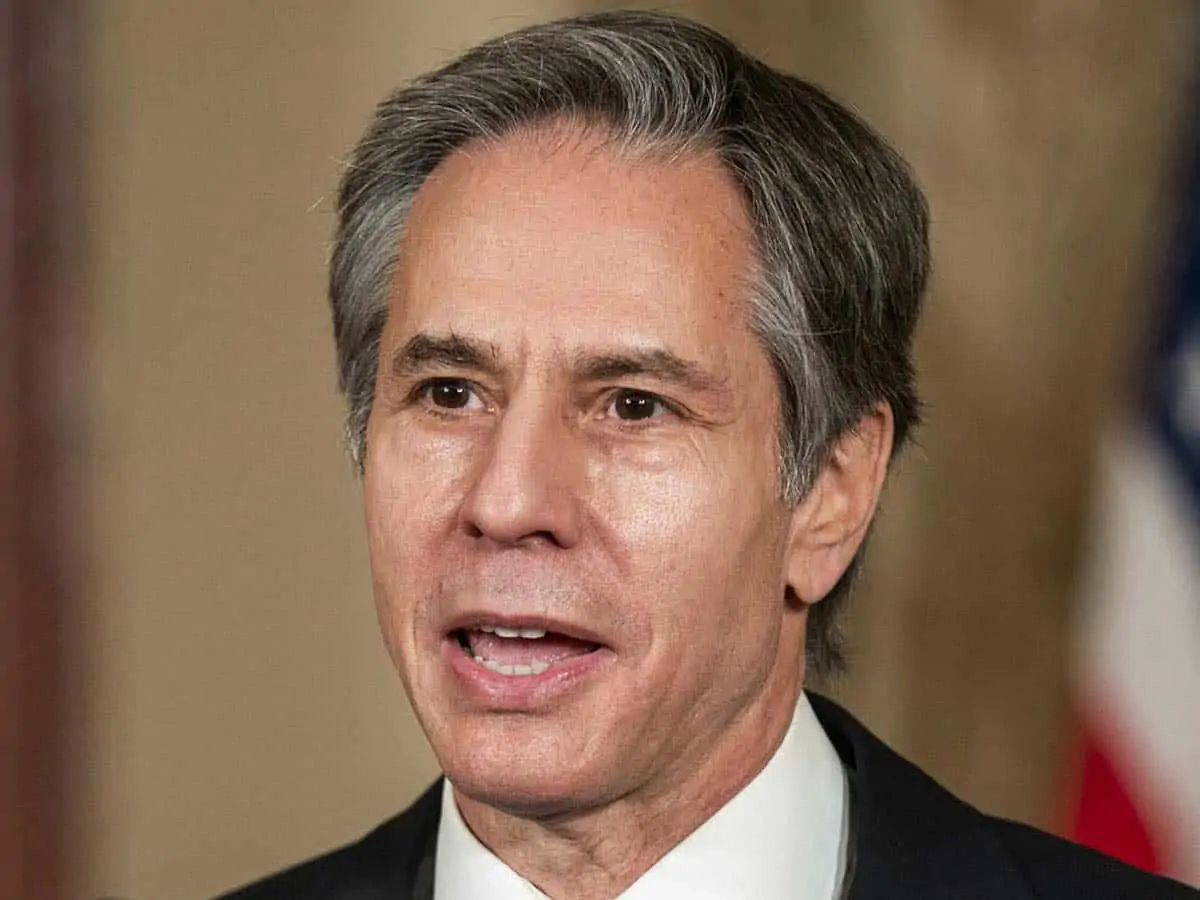
Washington: US Secretary of State Antony Blinken on Sunday reached out over phone to the foreign ministers of Jordan, Saudi Arabia, Turkey and Egypt, while Defense Secretary Lloyd Austin had calls with his Saudi and Israeli counterparts, amid signs of an escalating crisis in the Middle East following Iran’s strikes on Israel.
Iran fired more than 300 drones and missiles at Israel, which Tehran said was in response to the April 1 strike on its consulate in Syria.
Almost all Iranian drones and missiles were shot down by Israeli, US and allied forces before they reached their targets.
The diplomatic overdrive to fight the crisis came soon after US President Joe Biden had a conference call with G-7 leaders and had separate telephonic conversations with King Abdullah of Jordan and Prime Minister Benjamin Netanyahu of Israel.
In all the calls, the American leadership emphasised on the need to avoid further escalation in the region and reaffirmed America’s ironclad commitment to the security of Israel.
They also reaffirmed the importance of diplomatic efforts to achieve an enduring end to the crisis in Gaza that provides lasting peace and security for Israelis and Palestinians alike, the state department spokesperson Matthew Miller said in a readout of the calls that Blinken had with Jordan’s Deputy Prime Minister and Minister of Foreign Affairs and Expatriates Ayman Safadi, Egyptian Foreign Minister Sameh Shoukry, Turkish Foreign Minister Hakan Fidan and Turkish Foreign Minister Hakan Fidan.
Blinken thanked Fidan for Turkish’s ongoing engagement to prevent further escalation in the region, and discussed with Shoukry the importance of ongoing efforts to increase humanitarian assistance to Gaza and protecting Palestinian civilians, as well as achieve an immediate ceasefire that secures the release of all hostages.
“Blinken thanked Jordan for its leadership in providing life-saving humanitarian aid to Palestinian civilians, including through joint US-Jordan airdrops and overland deliveries,” Miller said.
In his call with Saudi Arabia Foreign Minister Prince Faisal bin Farhan Al-Saud, Blinken reiterated that while the US does not seek escalation, it will continue to help Israel defend itself. The secretary and the foreign minister agreed on the importance of a coordinated diplomatic response, Miller said.
According to Pentagon Press Secretary Maj. Gen. Pat Ryder Austin, in his call with Saudi Minister of Defense, Khalid bin Salman, emphasised that US does not seek escalation, and will continue to defend Israel and U.S. personnel.
Austin underscored the importance of the enduring US defence partnership with the Kingdom of Saudi Arabia and reiterated the US commitment to working with the Kingdom and other partners to deescalate tensions in the region, Ryder said.
“Austin also briefed Gallant on his consultations with partners and allies to reinforce international resolve in the face of Iranian aggression,” Ryder said.
Meanwhile, Biden reached out to the Congressional leaders on the greatest foreign policy crisis of his presidency.
“Biden convened a call this afternoon with Senate Majority Leader Chuck Schumer, Senate minority leader Mitch McConnell, Speaker of the House Mike Johnson, and House Minority Leader Hakeem Jeffries to discuss Iran’s unprecedented attack against Israel. On the call, the president discussed the urgent need for the House of Representatives to pass the national security supplemental as soon as possible,” said the White House.
At the UN headquarters in New York, UN Secretary-General Antonio Guterres told members of the Security Council, during an emergency meeting, that it is vital to avoid any action that could lead to major military confrontations on multiple fronts in the Middle East.
“Regional and indeed global peace and security are being undermined by the hour. Neither the region nor the world can afford more war,” he said.
Schumer told reporters in New York that Iran is becoming more and more isolated due to its “evil” actions. “The best way to help Israel rebuild its anti-missile and anti-drone capacity is by passing that supplemental immediately. As I said, Israel expended about over a billion dollars in defending itself and the security supplemental would replenish the kind of anti-missile and anti-drone defences that are in the Arrow, in the David’s Sling, and in the Iron Dome,” he said.
White House National Security Communications Advisor John Kirby joined several shows where he asserted that Biden and the US are ‘making good on its ironclad commitment to defend Israel. He also made clear that the United States is not seeking a conflict with Iran.
“Several hundred drones and missiles launched in the course of several hours and all most every single one of them knocked out of the sky. That’s not by accident. That’s terrific testament to the superiority of the Israeli military and also to our own military superiority and the effort, the resources President Biden committed to helping defend Israel,” Kirby told Fox News.
It’s an extraordinary example of military superiority that Israel demonstrated to the whole world and showed that Israel has friends and is not isolated on the world stage,” Kirby told NBC News.
“Now, whether and how the Israelis will respond, that’s going to be up to them. We understand that and respect that. But the president’s been very clear. We don’t seek a war with Iran and we’re not looking for escalation here. We will continue to help Israel defend itself,” he said.
